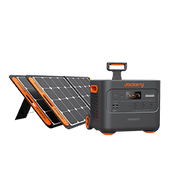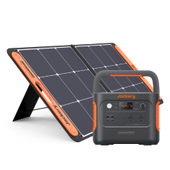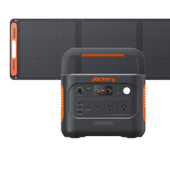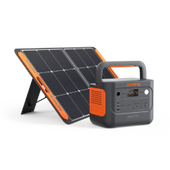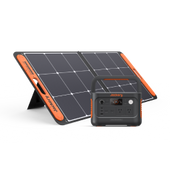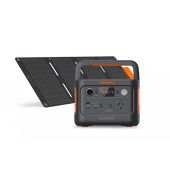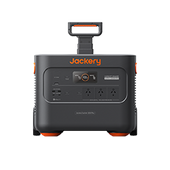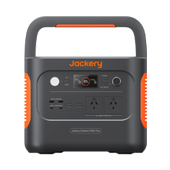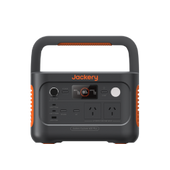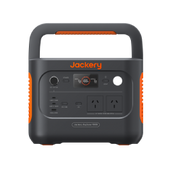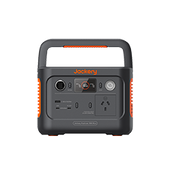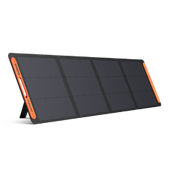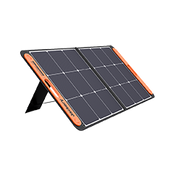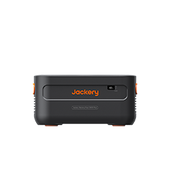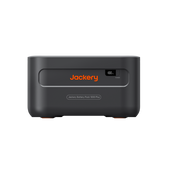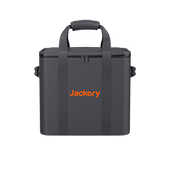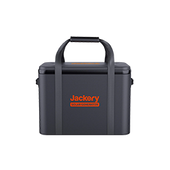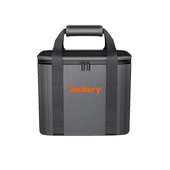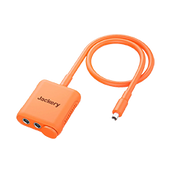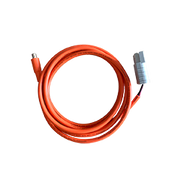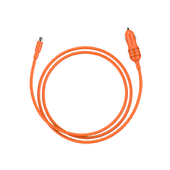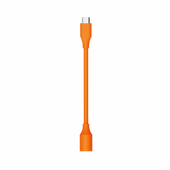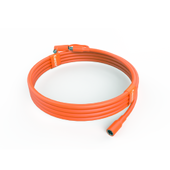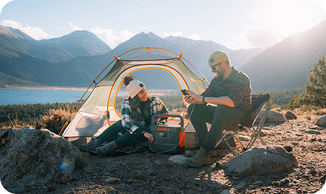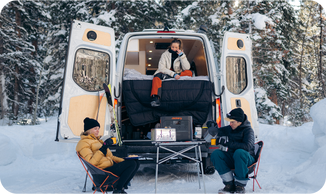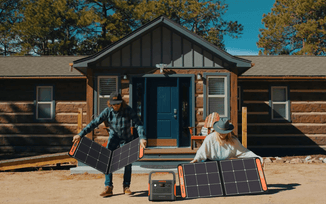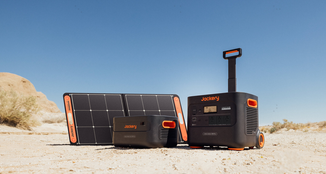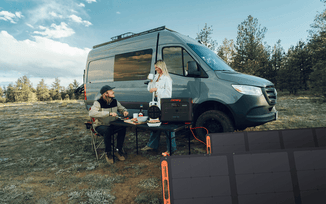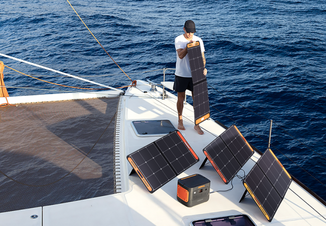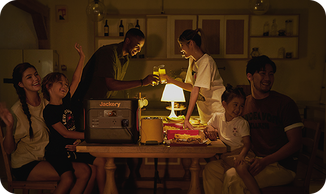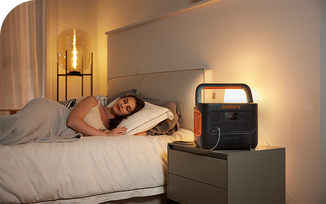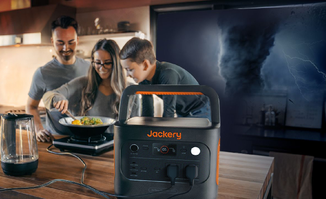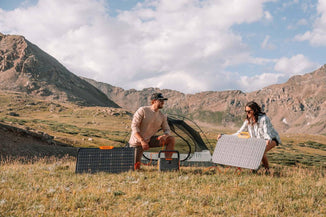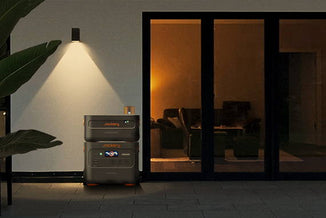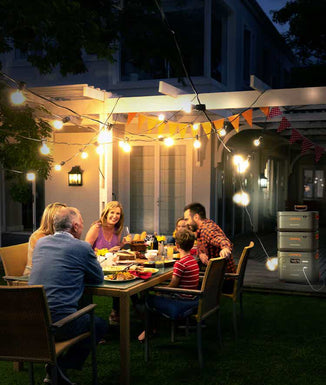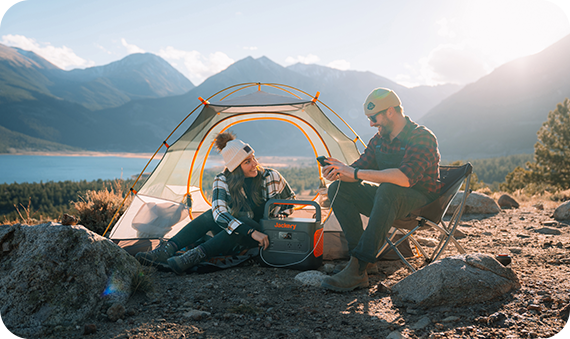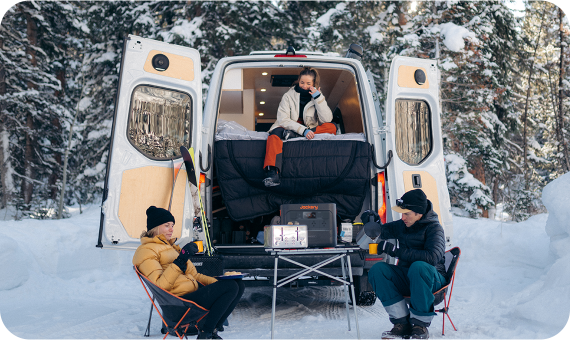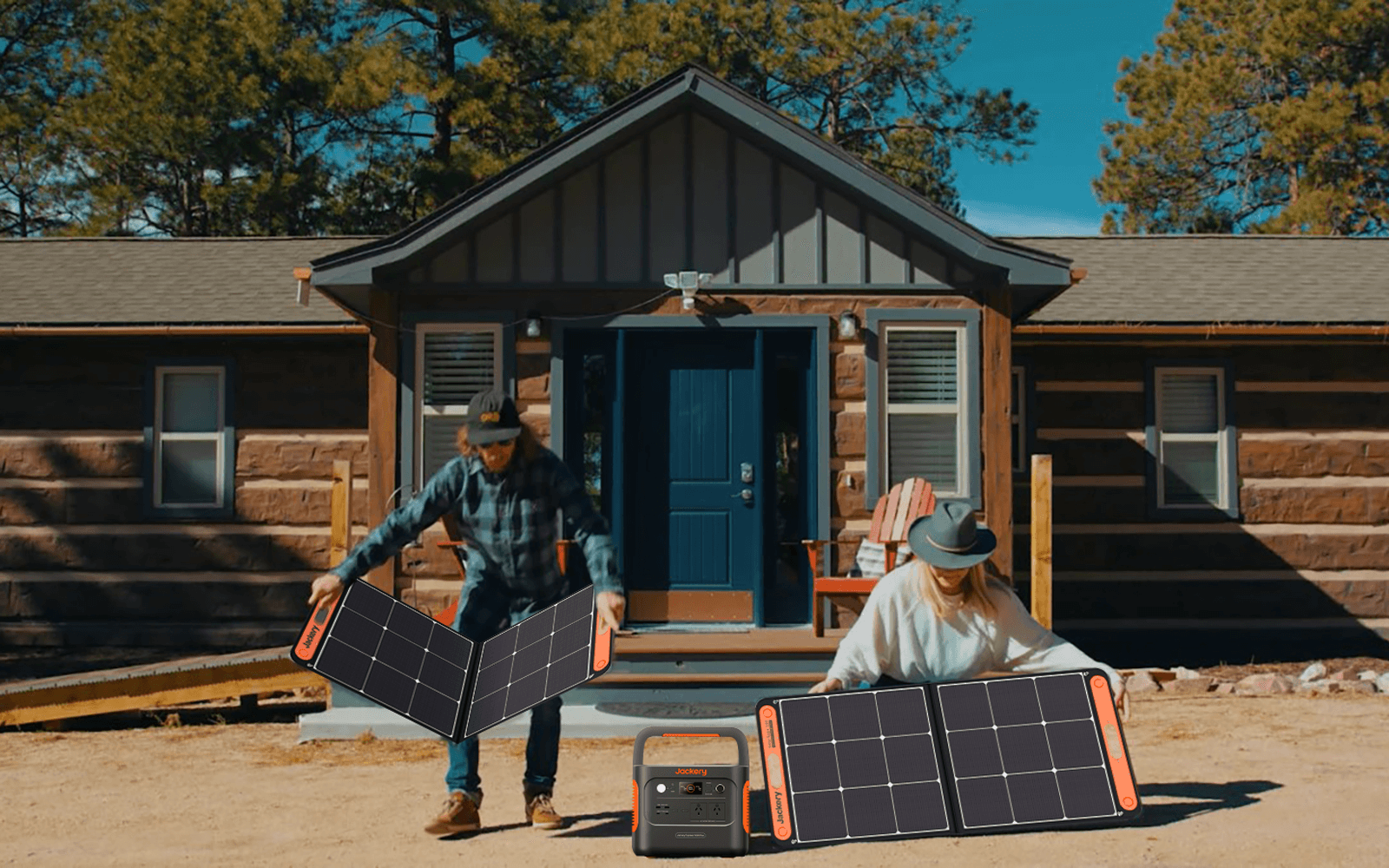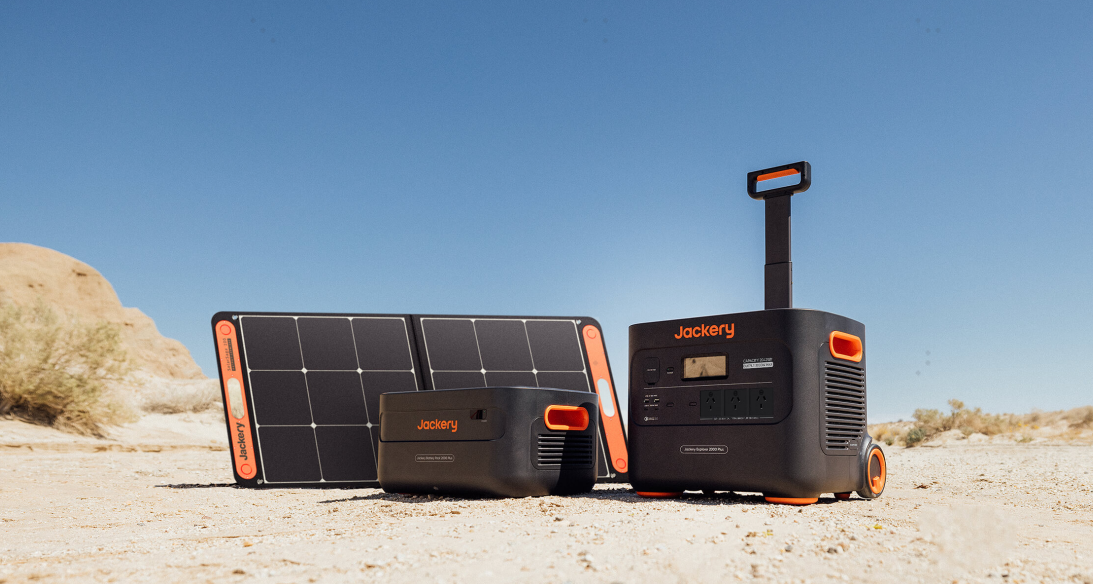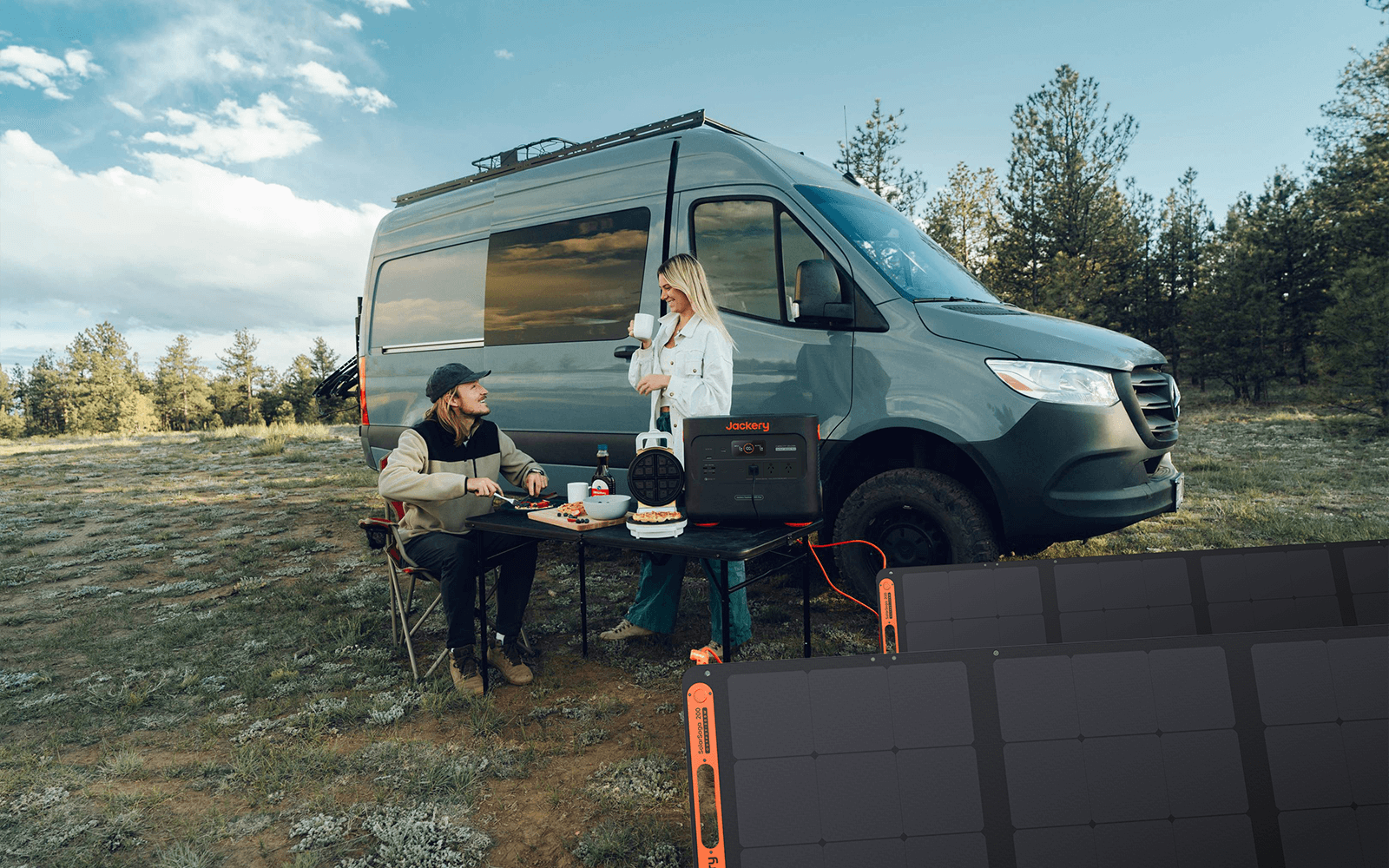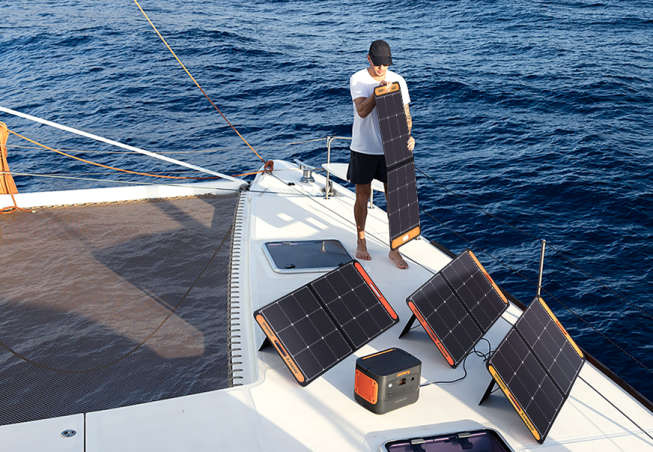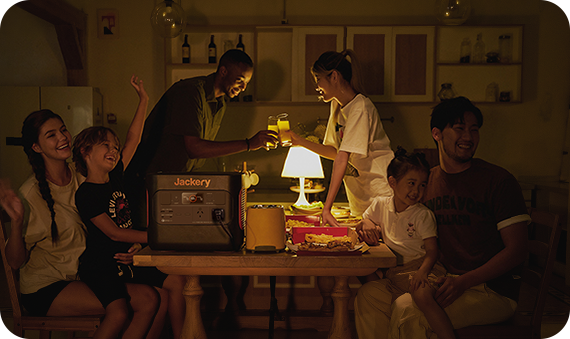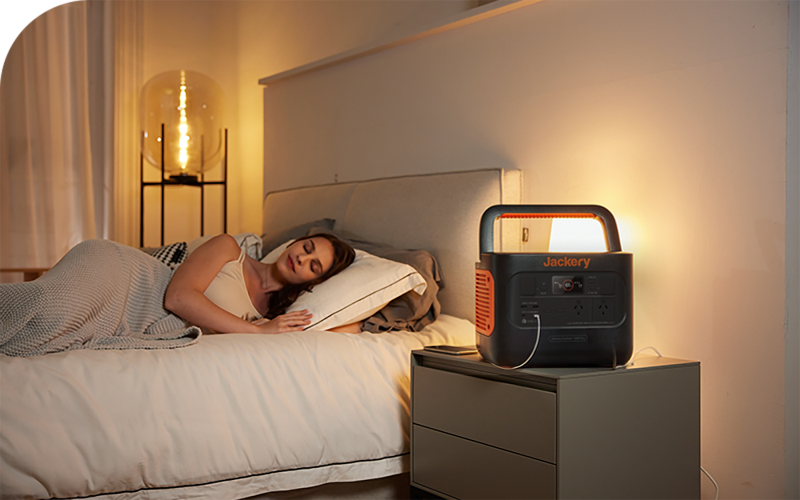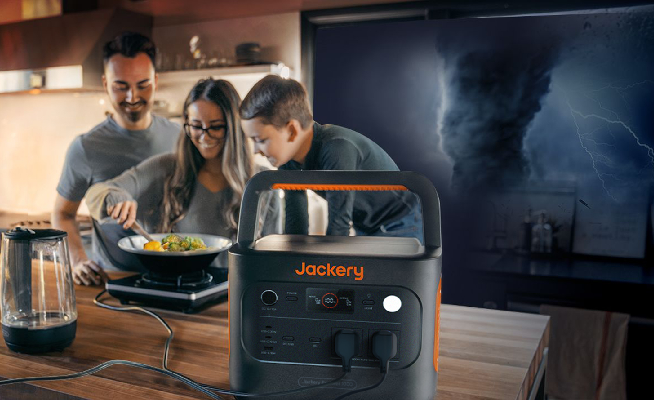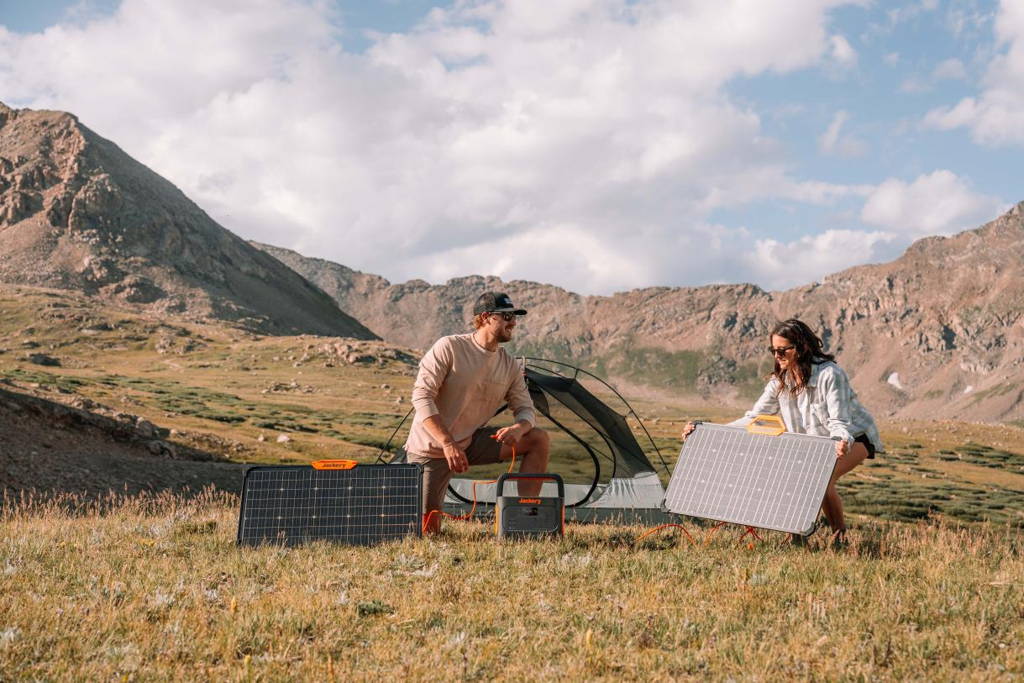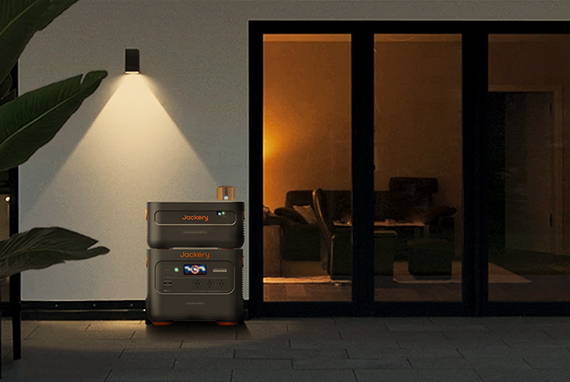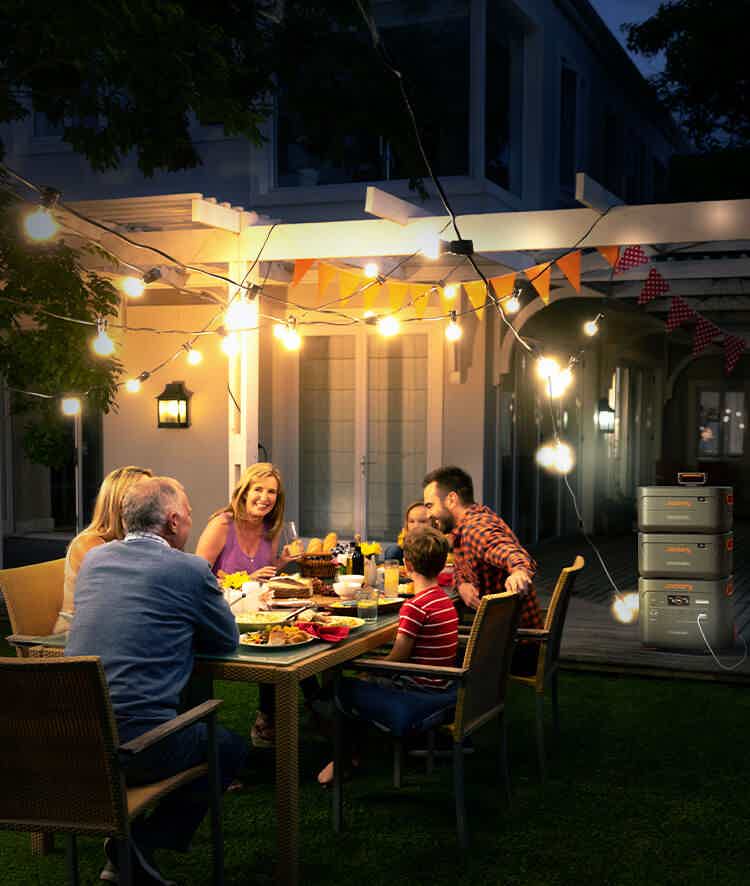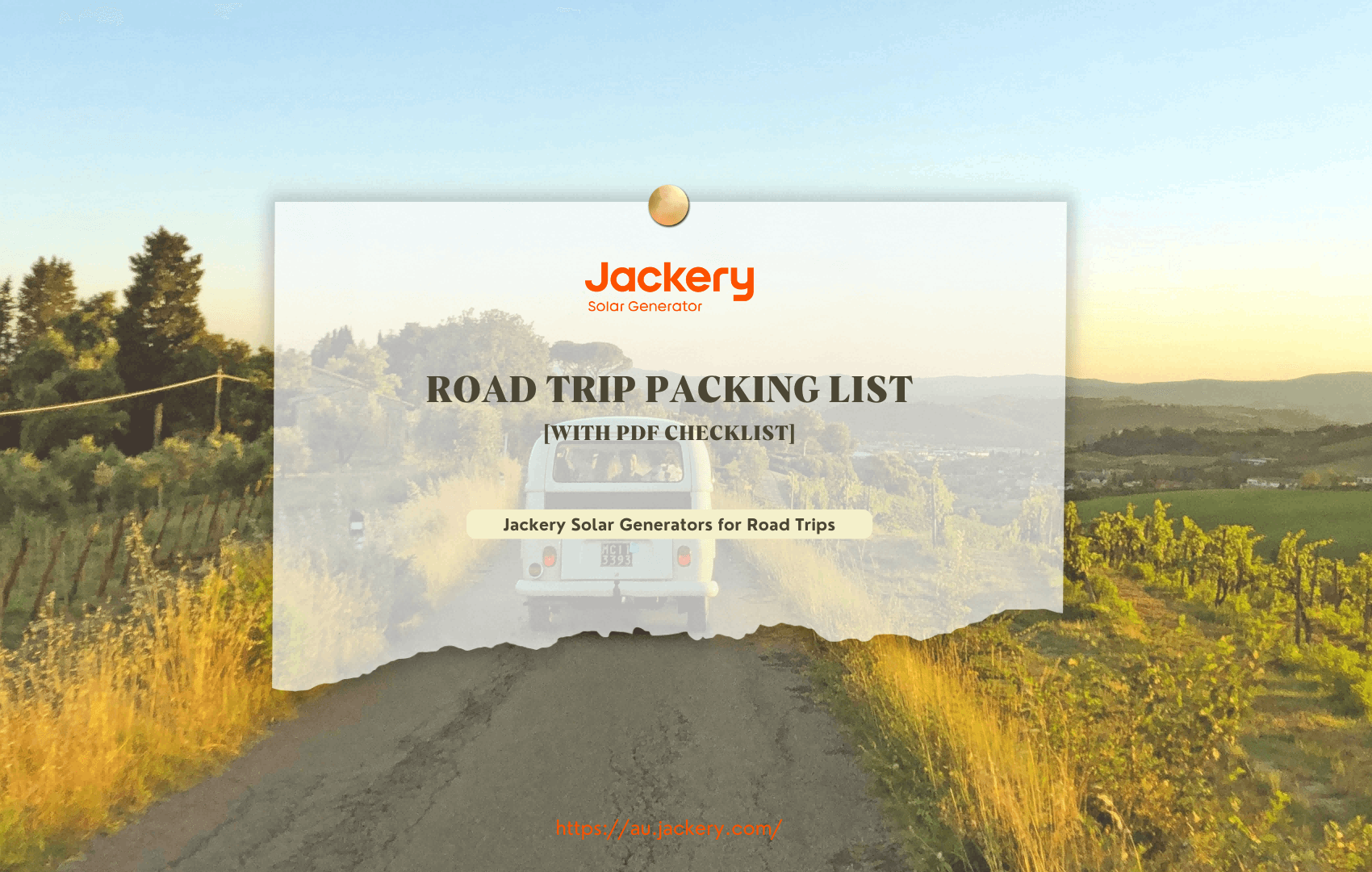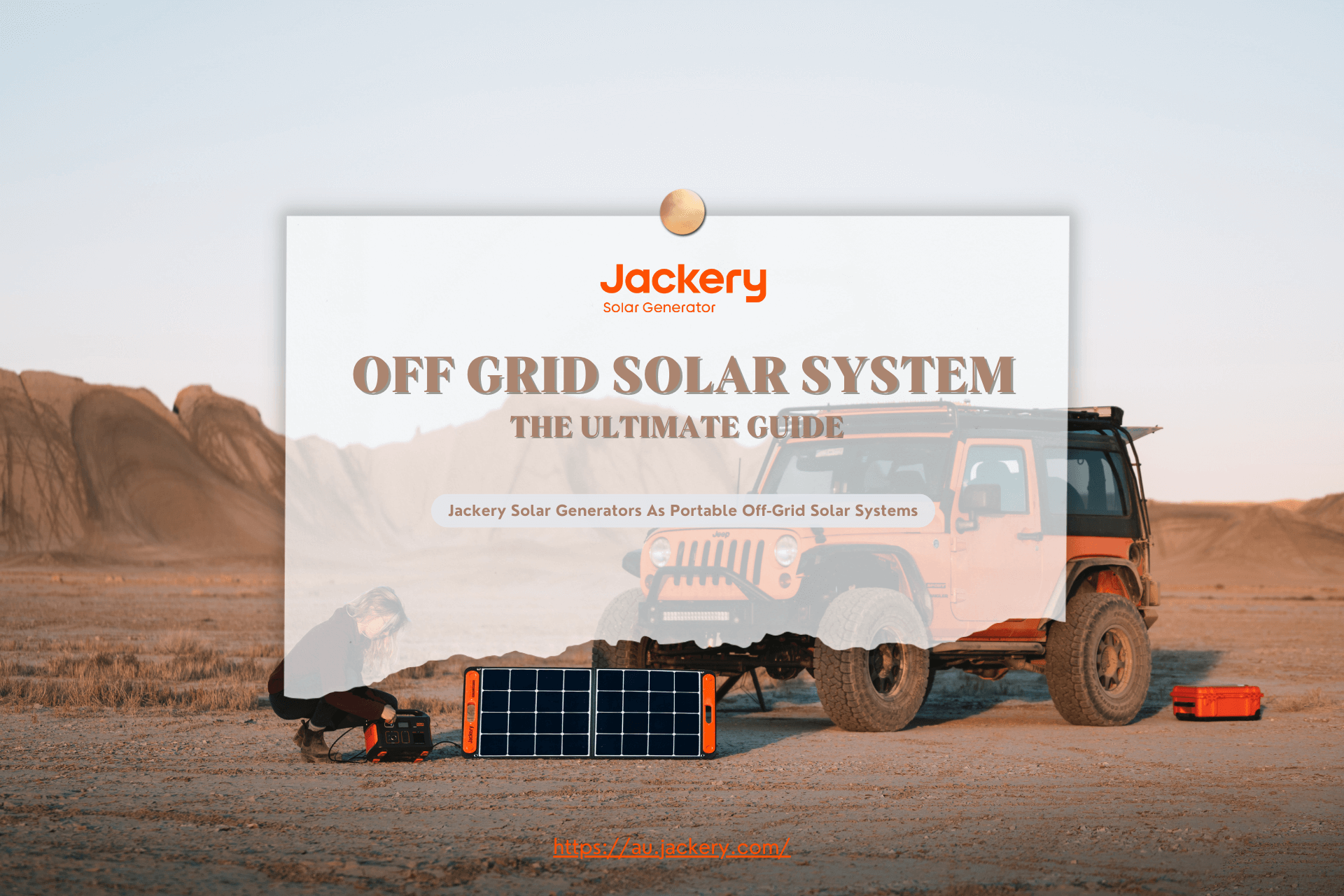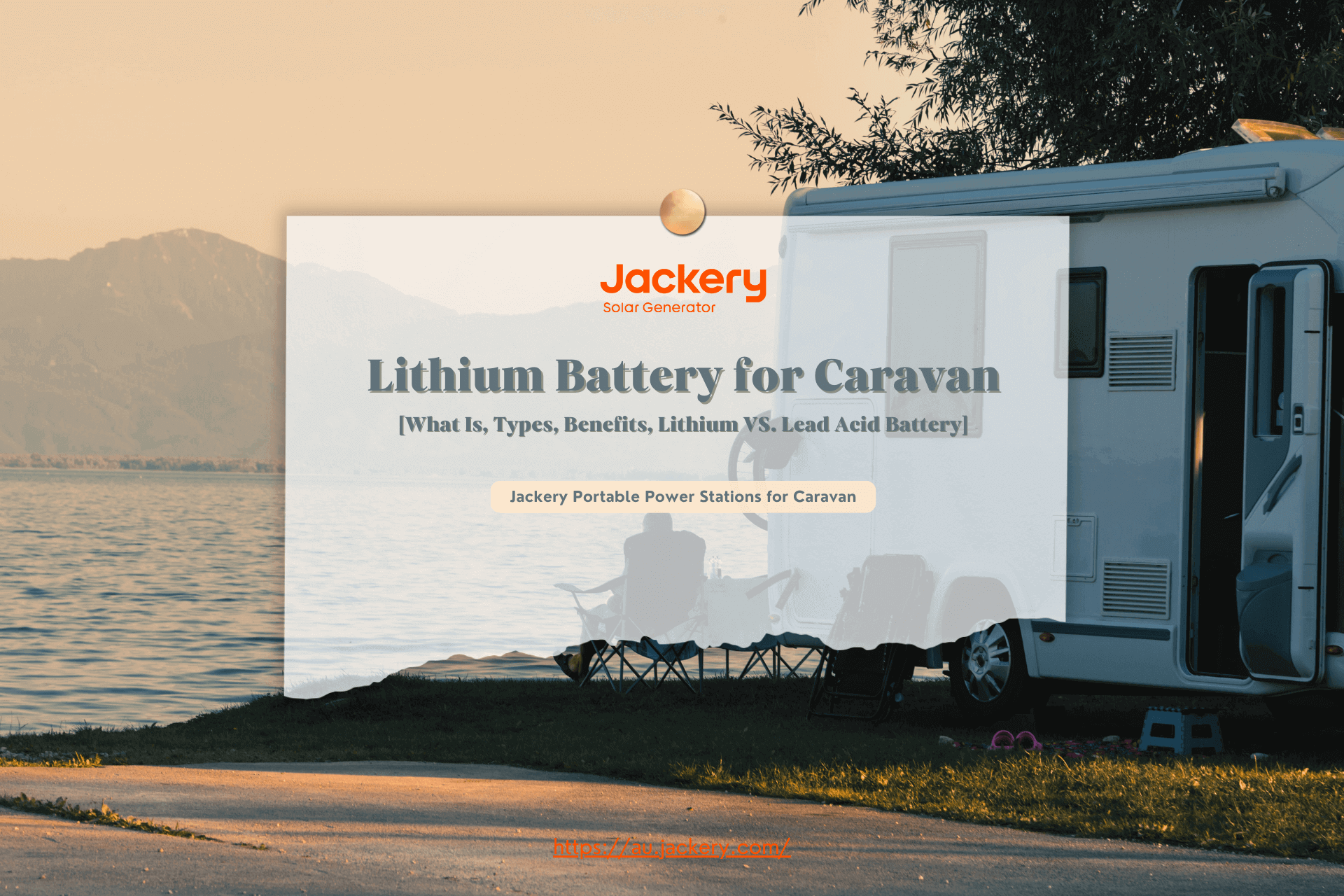|
Key Takeaways: |
|
• If you live in an "off-grid motorhome," you are not directly connected to the power grid. • Most of the time, the bigger the car, the more self-sufficiency features it will likely have, like solar panels, fresh water tanks, and gas cylinders. • An off-grid motorhome needs mainly five essentials: electricity, gas, internet, fresh water, and toilet capacity. • As for the electricity, you can choose a mounted solar system or a portable solar system. We highly recommend Jackery Solar Generator 1000 Pro or 2000 Plus for your off-grid living. • When living in a motorhome off-grid, pick a place to park, choose a power source, find the freshwater, and decide your showering method. |
What Is Off Grid Motorhome?
It is important to note that off-grid systems can run independently and are not linked to the power grid. It is often helpful in remote areas where it is not possible or practical to connect to the grid because of this. They are also popular with people who want to remove themselves from the power grid.
Off-grid solar systems don't need to be connected to the power grid, which is a benefit. Solar panels collect energy from the sunlight, which is then turned into electricity and kept in a solar battery (or batteries). You can use solar power without being connected to the grid. If you store enough solar power, you will still have power even when the grid goes down.
If you live in an "off-grid motorhome," you are not directly connected to the power grid. While living off-grid, you stay in a "free camping" on public land instead of a powered spot in a campervan park where all the utilities are nearby. In most cases, that also means not having a straight line to fresh water. That is, you depend on your own water and electricity sources alone.
Benefits of An Off Grid Motorhome
You can only remember some of the annoying things if you set up your motorhome to be off the grid. You'll feel free and independent.
This is likely one of the main reasons why many motorhomes live without power or water. It's cool to be completely independent. You won't have to worry about your water and electricity costs, and you won't have to fight traffic daily on your way to work.
You won't have to worry about rent or mortgage payments, rates, or home care costs when you live off the grid in a motorhome. Taking care of a trailer will cost money, but those costs should decrease over time.
If you live off-grid, you use a solar cell or set up to make your electricity. Because of how life off the grid works, you'll use less water and make less trash.
Which Type of Motorhome Is Best for Off Grid Living?
Most of the time, the bigger the car, the more self-sufficiency features it will likely have, like solar panels, fresh water tanks, and gas cylinders.
On the other hand, getting to off-grid places farther away will be more challenging if the vehicle is more significant. What you value most and where you plan to stay in your campervan, trailer, or caravan are the main things that matter.
There are a lot of things that matter when you go off the grid. Most campervans are less than six metres long and about two metres wide. Whether you choose a high-top campervan, which is usually 2.5 to 3 metres high, or a regular campervan, which is usually around 2 metres high, the height will be different.
That being said, most motorhomes are more extended than seven metres, so if you want to go to more rural, off-grid places, look into a compact motorhome less than six metres long.
The Auto-Trail F-Line F60, the MOTO-TREK Xplora FDB, and the Adria Compact Supreme SP are all examples. There are many to choose from, and most are about 2.1 metres wide and just under 6 metres long, which is a good match for the campervan's specific measurements.
For off-grid living, caravans, especially the lighter, shorter types like the Bailey Discovery, Adria Action, Xplore 304, or Barefoot, are also worth thinking about. These caravans are just over five metres long overall.
What Are The Essentials of An Off Grid Motorhome?
Some appliances, like microwaves, electric hotplates, and substantial fridge freezers, might need to be used off-grid. However, if you follow a few smart tips, a good leisure battery (preferably solar panels to keep it charged) and enough gas bottles should be enough to get you through most everyday tasks. You will also need a large freshwater tank.
Let's look at what an off-grid motorhome needs to have.

Electricity
If you don't have a mains hook-up, you must use your leisure battery to power your car. This is why most people who have off-grid adventure cars add a second leisure battery.
You can switch over by hand or automatically with a second battery. Make sure you pick the correct charger.
Category A batteries have the most storage space and are a good choice for a trailer or campervan not connected to the power grid. B batteries are better for campers who stay at a site with electricity but need a little extra power for tools that use a lot of it. When you don't need a lot of energy, category C batteries are better.
Ampere-hours (Ah) are used to measure battery power. A 100 - 110 Ah battery is the best size for an off-grid car. Modern lithium batteries are better than old lead acid batteries because they are strong but not heavy and can be drained more completely before losing their quality.
When it comes to lead acid batteries, it's important not to let them die too quickly. It would be best to charge it before it drops below 75% but before 50%. The battery will charge when you drive, but if you're stationary for a while, you should buy a charger. Brilliant charges keep batteries from being overcharged, which can shorten their life.
And now we must say that Jackery Portable Power Stations are the best portable battery packs for motorhomes. They use higher-quality lithium-ion and LiFePO4 batteries to ensure they last longer and hold more power.
A motorhome can get power from several different sources besides its batteries. These include solar panels, a wind engine, a ground source heat pump, a hybrid system, and a solar generator.
|
Power Source |
Details |
|
Solar Panels |
A viable method of powering an off-grid house. Cheaper and more efficient There are also often incentives to help cover the cost, and once installed, there is very little maintenance involved Perhaps the best option for green energy as long as you have a south-facing roof or spare land to place ground-mounted panels |
|
Solar Generators |
Easy to take anywhere Lower noise level Absorb sunlight and turn it into electricity Cheapest option Simple to set up and maintain |
|
Wind Turbine |
If you live by the sea or somewhere with a steady breeze, wind can be a viable way to generate renewable energy A modest-sized turbine could generate anything up to 10kW in the correct position, providing energy throughout the day or night Need enough space and not suitable for motorhome |
|
Hybrid Off Grid System |
Use a combination of solar and wind or solar and geothermal. (Wind and solar are the most common combination) Depending on how much energy you would need to generate, a hybrid system wouldn't have to be more expensive than a single source Not suitable for motorhome |
Gas
When you go off the grid, buying a second gas cylinder for your recreational vehicle is best if you use gas tools. That way, you'll always have a full one on hand.
Of course, this will mean we need more storage room. Some cars are made to do this. If not, look for a vehicle with a garage in the back to create more space.
Naturally, you'll need to plan your trip around these stations, but it's something to consider for your off-grid camper because you can fill up your gas tank whenever you want, and the gas is also much cheaper.
Internet
These days, only a few people can live without the internet. This is especially true when you're travelling and want to plan your trip, look up local sites, and find places to get fresh water and throw away trash.
You don't have to be offline just because you're not internet-connected. A 4G or 5G internet system with a mobile SIM card connects to antennas on the roof and works. These systems are generally good enough to let you watch TV and videos and browse the web with unlimited data for a low monthly fee. Great for people who want to stay connected while driving an off-grid vacation van!
Fresh Water
An off-grid motorhome needs to hold a lot of fresh water. You should have at least 100 litres of water since an average shower uses about 45 litres. If you don't have access to fresh water for a while and don't want to keep getting more, that's even better.
No matter how little water you use in the bathroom, you'll still use 12 litres. After that, you'll need water to wash, cook, and do washing. To sum up, 100 litres of water can last anywhere from two to four days, based on how cheap you are and how many people are staying in the van.
If you want a small, flexible, off-grid campervan or caravan that doesn't have a bathroom or shower, you should be OK with a minor freshwater source. After all, you won't have the luxury of a toilet and shower on board.
Toilet Capacity
It would be best to consider how much space a toilet has. Based on how many people stay with you, a standard cassette toilet could be completed in one day to one week. If you're far from an Elsan Point or Chemical Disposal Point, it makes sense to bring a second tape because it will save you money. You could also have a composting toilet put in.
You can camp off the grid without worrying about how to empty your toilet if there aren't any services available. But they cost a lot of money and can be challenging to install afterwards. They work best on panel van rebuilds.
Jackery Solar Generators for Motorhome
Solar generators are a cheap alternative to standard power sources that let people use solar energy without paying a lot each month for service or installation. If people buy a solar generator, they can get clean, green energy for much less money than if they got power from the grid.

The Jackery Solar Generator is the best portable solar system to turn sunlight into electricity. It has Jackery Solar Panels and a Portable Power Station.
The Jackery Portable Power Station has a high-quality lithium battery, an MPPT charge controller, and a pure sine wave inverter to ensure your phones, radios, lights, batteries, and other personal and household electronics have a stable and consistent power source for a motorhome.
Jackery Solar Generator 2000 Plus
The Solar Generator 2000 Plus by Jackery significantly enhances the available choices for portable electricity with its exceptional performance. With its substantial capacity and formidable power output, this device can provide electricity to normal RVs for extended periods.
It is an excellent choice for outdoor excursions or as a backup power source for residences. Adding battery cells to the Jackery Solar Generator 2000 Plus enhances its capacity from 2 kWh to 12 kWh, leading to a significant transformation in providing backup power for households.
The Explorer 2000 Plus has a maximum power output of 3000W, 30% greater than other 2 kWh models with similar specifications. The bulk of critical household appliances are powered gadgets. Although the Solar Generator 2000 Plus is commonly used, it can achieve a complete charge within 6 hours by utilising six SolarSaga 100W solar panels. The power source achieves self-sufficiency by harnessing solar energy rather than relying on the power grid for charging.
The supplementary battery pack can be recharged using solar panels, offering increased versatility while enhancing charging efficacy and reducing time consumption. Jackery Solar Panels have an impressive solar conversion efficiency of up to 25%, generating more energy during its lifespan. Our solar panels exhibit a 50% higher energy generation capacity in low-light conditions than conventional solar panels (PERC) and possess a more resilient spectrum response.

Jackery Solar Generator 1000 Pro
Combining SolarSaga 80W solar panels with the Explorer 1000 Pro portable power station, the Jackery Solar Generator 1000 Pro is a remarkably quiet generator, with noise levels as low as 46 dB. It has a lifespan of over ten years and can be fully recharged in just 1.8 hours. This device's dual 100W PD design provides a consistent and reliable power supply, ensuring that all necessary appliances remain operational during a power loss.
The Explorer 1000 Pro power station is a rechargeable device with a capacity of 1002Wh. This allows it to power various appliances, including a television, CPAP machine, E-bike, refrigerator, and other devices, covering around 93% of commonly used equipment.
In addition, it is equipped with two 100W PD connectors and two USB-C ports, ensuring reliable and fast charging for various devices such as smartphones, cameras, and laptops. The MPPT technology guarantees a solar charging efficiency of 99%. Furthermore, this system supports recharging techniques through walls, vehicles, and solar recharge.

What Size Solar Generator Do I Need?
To choose an appropriately sized solar generator, it is essential to consider your energy requirements, the effectiveness of your solar panels, the capacity of your battery storage, and the specific requirements of your equipment. Selecting the appropriate solar generator size requires balancing energy requirements, installation effectiveness, portability, and expenses.
Users can choose a Jackery Solar Generator for a portable solar system, which comes in sizes ranging from 12 kWh to 300Wh, depending on their energy needs. The formula for approximating the operational hours of appliances powered by the Jackery Solar Generator is as follows:
Working Hours (H) = [Jackery Solar Generator Capacity (Wh)*0.85] / Appliance's Wattage (W)
The Jackery Solar Generator 2000 Plus can power a 100W ceiling fan for 16 hours (2042.8Wh x 0.85/100). This calculation helps determine the hours when appliances can operate.
How to Live Off Grid in A Motorhome?
If you want to live off the grid, there are a few things you should think about. The most important ones are having your own water and power source and a way to eliminate trash. Also, ensure you know where to park and do what you can to stay safe. Let's look at each of these more closely.

Pick A Place to Park Up
Australia's landscapes keep getting better and better. There may be times when you want to spend the night in one of them. But you should know you must find a way to leave your RV. Each state has its own rules about where to park. So, learning the rules for free camping is essential to ensure you follow them wherever you go.
This is also something to think about when stopping for a long time. In some states, you can park your motorhome in private areas for as long as you want as long as it doesn't go over certain size limits. But, once more, it's a good idea to learn the rules about parking a van in your area.
Choose A Power Source
You won't be hooked up to a power source when you live off-grid. Here are two good options instead:
Generators, especially Jackery Solar Generators, can make power at both 240V AC and 12V DC. It works like shore power when you put it into your RV. They are an excellent way to deal with machines that use energy.
It could be more robust but charges your 12V battery well and runs most tools well. One problem is that an outside engine can be thunderous at times. They can also be heavy, and you'll have to take fuel. Keep this in mind if your burden is negligible.
Direct current (DC) energy is made by solar panels when sunlight hits them. The DC electricity is then changed into AC electricity by a transformer, which can then be used from the power points in your RV.
Watts are used to measure the size of your solar power system. The higher the capacity, the more energy it will produce, but this depends on how much and how strong the sunlight is. Solar panels work well because they always charge when the sun is out. And that's a good chance in Australia.
Freshwater & Wastewater
You won't want to run out of fresh water if you live off the grid, especially if you travel far away. How much water you need will depend on how often you use it and how many people are with you. You'll need to consider how much fresh water is used daily for cooking, drinking, washing, flushing the toilet, and taking a shower.
Adding fresh water to your tank every one to two days will keep it from getting dry. Being safe is always better than being sorry. Every spot you stay at will have a freshwater faucet that makes it easy to fill up your tank.
An essential part of living off-grid is getting rid of your trash correctly. If you dump waste in the wrong place, it can hurt the environment and people's health. People who camp for free are asked to "Leave No Trace." Check your campsite one last time before you leave, and remember to respect cultural places.
Decide Your Showering Method
As lovely as it sounds, nothing beats a hot shower after a day of exploring. There are hot water units built into some motorhomes. Some people might still need a shower setup. You might have to find another way to shower if you need help. Here are some ideas:
- Portable solar shower or just portable shower
- Public facilities at beaches
- Public shower at a gas station
- Membership to a nationwide gym or recreation centre
Off Grid Motorhome FAQs
These are the questions that people in Australia ask most often about off-grid motorhomes:
- 1. Can you make a motorhome off-grid?
You can do a few things to take your motorhome off the grid. You only need a solar panel kit and a van with enough comfort to make you feel at home.
- 2. What is the best off-grid motorhome?
The Frankia 7400 PLUS Platin Pure Edition, which won an award in its category, is the best off-grid choice based on my simple calculations. You might be ready to hit the road if you have a 300 Ah-LiFePo battery, three 115-watt solar panels, and a choice to charge your battery faster.
- 3. Can solar panels power a motorhome?
Motorhomes can use solar power, which is a great choice. Solar panels aren't just for charging your starter and pleasure batteries; they're also a clean, green, and efficient way to make electricity that lets you stay away from the grid for longer!
- 4. What is the best battery for off-grid motorhome?
Lithium batteries, also known as LiFePO4 batteries, are great for going off the grid because they have a high energy density, are light, and don't need much upkeep. Jackery Portable Power Stations use lithium-ion and LiFePO4 batteries, which have a longer lifespan, higher capacity and can be charged longer.
- 5. What size battery do I need for my motorhome?
There are different battery sizes based on how much power you need. The most popular are group 24 and group 27 batteries, also called "house batteries." If you don't have much room or only need to power small accessories, the Group 24 battery is a good pick.
Final Thoughts
With the assurance that you are independent and strong, you can unwind and enjoy a carefree life with your family in an off-grid motorhome. Many people like you have considered selling their house, getting a motorhome, and living without power or water.
You can enjoy not having to pay rent or a mortgage, visit the country, and meet interesting new people. Wow, what a dream come true! It would be best to have many things to live off the grid in a motorhome, but power is the most important. You can consider owning a Jackery Solar Generator to power the outdoor and motorhome appliances with solar energy.

